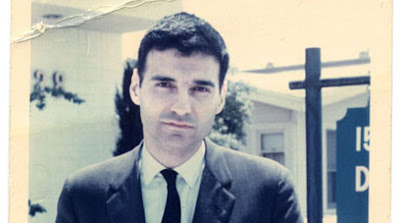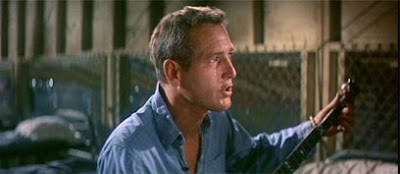
[With politics dominating our conversations, The Cooler offers the following review, written upon the film’s release in the author’s pre-blog era.]
You see him as the gallant superhero for the average American consumer. Or you see him as the megalomaniac whose unrealistic presidential bid landed George W Bush in the White House. Or maybe you don’t see him at all. But whatever image you have of Ralph Nader today, figure that it will change as you’re watching the engaging profile smartly titled An Unreasonable Man. Heck, figure that it will change a few times.
That’s this documentary’s beauty. Directed and edited in frequently fawning tones by Henriette Mantel and Steve Skrovon, Unreasonable is the product of Nader supporters. That much is clear. Yet the profile is peppered with dissent. It’s not a balanced portrayal, but it is most definitely fair, which is all we can ask and more than we can expect from a political film. Here, Nader’s critics never get the last word, but they’re neither ignored nor restrained. One detractor goes so far as to call Nader a Leninst, and his charge – harsh though it is – is allowed to resonate.
That Mantel and Skrovon are so willing to embrace this anti-Nader vitriol without resorting to itemized rebuttals demonstrates their assurance in both their filmmaking and their subject. And it’s equally telling that Unreasonable refrains from cheap-shot innuendo. Today the doors to America’s public debate forum are open as wide as ever, what with the Internet, cable news proliferation and the recent documentary boom. Yet the end sum doesn’t seem to be an increase in open-minded discussion so much as a surplus of open-mouthed yelling. Unreasonable bucks that trend with its simple civility.
This film is passionate, measured and convinced, much like its subject. One could easily be put off by Nader’s smug self-assurance, but at the same time it’s refreshing to see someone so willing to live in the line of fire. If Bush is Queen Isabella, sending others into unknown lands, ready to take credit for success or blame failure on poor intelligence, Nader is Christopher Columbus: where his ideas go, his ass follows. That doesn’t make Nader perfect (though he might argue the point), but it at least makes him respectable.
Should you find it difficult to embrace Nader today, you ought to be able to appreciate some of his past achievements. The first half of Unreasonable details Nader’s long career as a consumer advocate, including his daring fight with General Motors in the mid-1960s, which led to significant auto safety reform. A lesser man would have rested on those laurels. A lesser film would have done the same. But the latter half of Unreasonable bravely treads into muddier ground, examining Nader’s role – real or imagined – as “spoiler” in the 2000 presidential election.
On this subject, there is no simple interpretation, though mine finds Nader culpable of nearsightedness, if innocent of Al Gore’s demise. Others see it differently. That they get to say so on camera says something impressive about this film. By broadening the conversation, Unreasonable gives Nader more depth in two hours than Bush has suggested in two terms.
[“Queue It Up” is a series of sporadic recommendations of often overlooked movies for your Netflix queue.]


















































